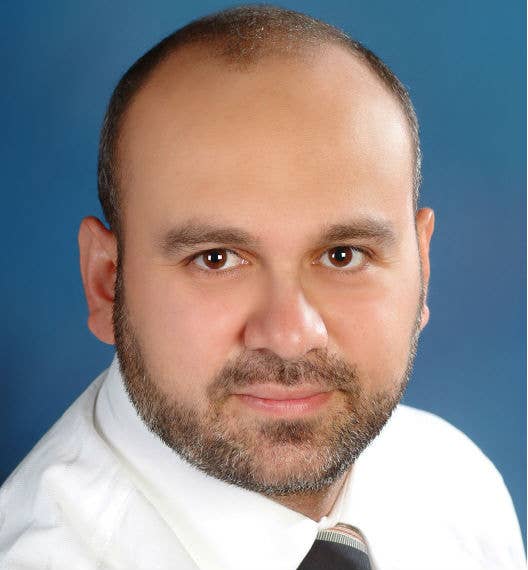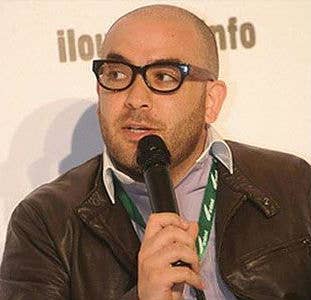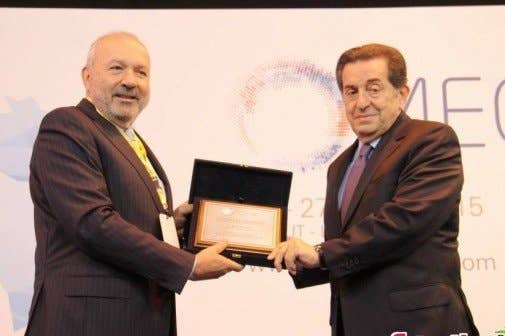MENA: Starting an industry from scratch
The Middle East and North Africa has huge potential as a consumer market, and its local developers intend to make it their own
Any country attempting to build an industry for games today does so on a lopsided field of play. The rise of digital channels for communication and distribution has diminished national boundaries to the point where they can seem all but irrelevant, giving a tremendous advantage to companies from longstanding hubs like the US and Europe. A startup in a region with no tradition of game development isn't just competing with its fellow pioneers. If King, Supercell, EA or any major company with a digital portfolio has taken a shine to that corner of the world, it's also competing with them, and the vast resources they can bring to bear.
So an event like the MEGA Games Conference in Beirut - the first ever game-focused conference for the Middle-East and North Africa - is charged with a peculiar energy. The local games companies gathered here are hungry for opportunity, but they are pushing towards very different and potentially contradictory goals: first, to create a sustainable industry for the MENA region's aspiring developers; second, to nurture the region's nascent market for games. International companies with one eye on doing business here will care little for the former, but there is a paradoxical expectation that they will receive local help to make money from the latter.
”Would people like to play Call of Duty instead of Arabic games? Of course. But they can have both”
"I think a big advantage [regional developers] could have is as a mechanism for facilitating the [international] companies who could sell here," says Kate Edwards, CEO of the International Game Developers Association, who is at the MEGA conference as a keynote speaker. "They could act as a bridge, so to speak, and help them to understand the market."
In a sense, Edwards is correct: local developers can play that role. In fact, when any regional market for games displays its first significant signs of growth they often do, giving far bigger and more established companies an easier ride to what little revenue exists. However, while that may increase the number of available products and boost the the total annual revenue figures, it does little to improve the foundations for a local industry. If those international companies suddenly lose interest or curb their expansionist strategies, any progress that has been made can quickly be erased.
According to Gameforge CEO Carsten van Husen, another international speaker at the conference, the MENA region's developers still have a window of opportunity in that respect. Any company with an interest in globalising its products is likely to be prioritising other fast-growing markets, specifically those in Latin America. Gameforge has been present in MENA for many years, he says, but that has more to do with the company's ongoing strategy to enter new markets early, regardless of how small its local presence or the size of the resulting revenue.

"It's always interesting to be here, but it's not a massive market," he says. "It's nice, one-digit millions in annual revenue, and we have been at $100 million annually for quite some time. That puts it into perspective."
For an international company, many of the difficulties involved with gaining a foothold in the MENA region will be familiar: the infrastructure to support secure online payments needs major development, internet speed and download capacity varies wildly from country to country, as does the average income. This means that the countries on the Persian Gulf, even those with just a few million citizens like Oman and Qatar, are far more lucrative than vastly more populous countries like Egypt and Morocco. As a region, Van Husen says, the MENA resists a one-size-fits-all strategy.
However, issues around bandwidth, e-commerce and, to an extent, wealth disparity tend to be resolved as general economic progress is made, and that's why the MENA region is starting to draw attention. According to data supplied by the organisers of the MEGA Games conference, there are almost 530 million mobile phone users in the Middle East alone, with smartphone penetration rising 39 per cent in 2015. Among those smartphone users 72 per cent are under 34 years old, an ideal demographic spread for the games industry. Admittedly, North Africa is in a very different economic position to the Middle-East, but there is compelling evidence to suggest that a huge opportunity exists for companies willing to do the appropriate research, to look beyond the "MENA" label and develop a more granular strategy.
”Companies think that succeeding in Europe means they can succeed here, but actually they have done so much damage to our industry”
International companies have so far been unwilling to make that kind of effort, however, and that may be to the benefit of the communities of independent developers emerging all over the MENA region.
"So many companies come to the region, bringing their games as they are," says Fadi Mujahid, the Syrian computer engineer who founded the online game publisher and developer Game Power 7, a true pioneer of the MENA games industry. "They think that succeeding in Europe means they can succeed here, but actually they have done so much damage to our industry, more than they have made benefits. Not even good translations, and sometimes only Google translation. It is not the right way. Players started losing faith in online games because of those failures.
"That's why, when we started, we were very clear that we were not 'localising' - we were 'culturalising' the games. Translation is 10 per cent of the preparation. We have graphics changes. We have voice changes. We have story changes. A lot happens before we introduce any game to the market."
This is a boon for developers in the MENA region precisely because there is a huge demand for games from the US, Europe, Japan and other traditional development centres. One needn't walk far on the streets of Beirut before encountering a cafe packed with people playing the latest AAA shooter. But, as Mujahid points out, the experience is compromised due to the lack of investment in localisation, and that compromise naturally leads to an opportunity: to create products specifically for the rapidly growing community of Arab gamers; products that resonate in a different and more personal way than international games.

This isn't a zero sum proposition. The biggest brands in gaming will always be desirable, regardless of how much or how little attention is paid to the specificities of the regions in which they are released. A more generous supply of Arabic games would do little to threaten that, but it would create alternatives where none presently exist. Another company pushing towards that goal is Falafel Games, an online developer founded by CEO Vince Ghossoub in 2010. When I point out the obvious popularity of the FIFAs and the Call of Dutys among young people in Lebanon, he smiles and shakes his head.
"Would people like to play Call of Duty instead of Arabic games? Of course they would. Of course. But they can have both.
"Games are like species: they evolve, they diverge, they converge, they appear, they become extinct. You will always have people who want to play the European fantasy style, and they can have that. But there are a lot of people who want to play the Arabic fantasy style, but they can't have it. This is the part that we can look after.
"We don't do the best MMOs in the world, maybe, but so far we're the only company that does them for the MENA. I always think, okay, in the next six months there will be something else coming up on the web or mobile, but there's not enough."
”There's nothing right now that is worth it. We are waiting for our blockbuster”
The MENA region is so early in its development, as both an industry and a market for games, that reliable data can be difficult to source. However, of the many facts and statistics to emerge from the MEGA Games conference one stood out: at present, there are 400,000 games in English on the App Store; in Arabic there are approximately 250, despite smartphones being the most accessible gaming platform for the MENA region. Indeed, the proportion of Arabic games is so small, Ghossoub says, that they don't register even as a sub-category.
"It is an opportunity. However, it doesn't mean that more Arabic games will create less of an opportunity. At this point, the number of Arabic games is so small it's not even on the users' radar. There's 2,000 new games a week on the App Store, in all sorts of different languages. It would be an even bigger opportunity if there was 1,000 games in Arabic, or 2,000, or whatever the number is. We need a critical mass of games, and we aren't there now."
"The number of games is negligible," Mujahid agrees. "It's almost zero. But there are [Arab] gamers now, and they have to play in English or other languages because there's nothing right now that is worth it."
At this point Mujahid leans forward, raises his left hand and extends his index finger, emphasising the point.
"Worth it. Maybe one game that is really worth it will create a major ripple effect, and draw attention to other Arabic games being developed, and show other developers that this is a good market. We are waiting for our blockbuster."
This is the first in a series of articles on game development the MENA region that we will publish over the coming weeks. Stay tuned for more.

